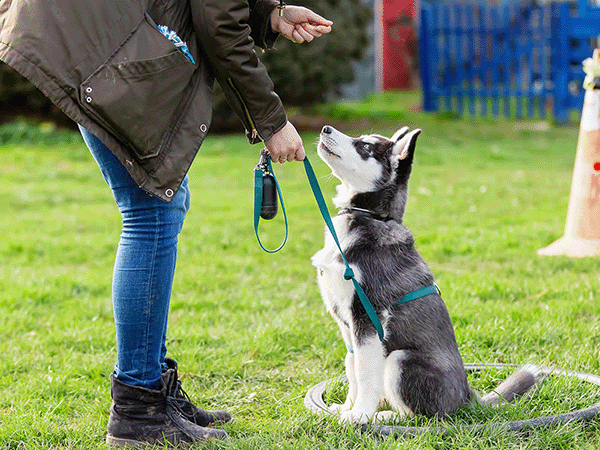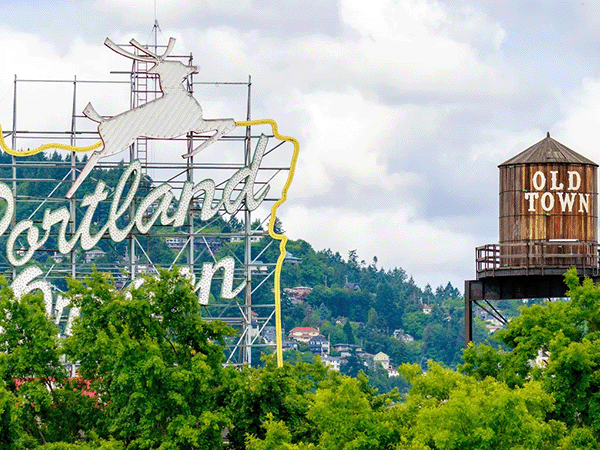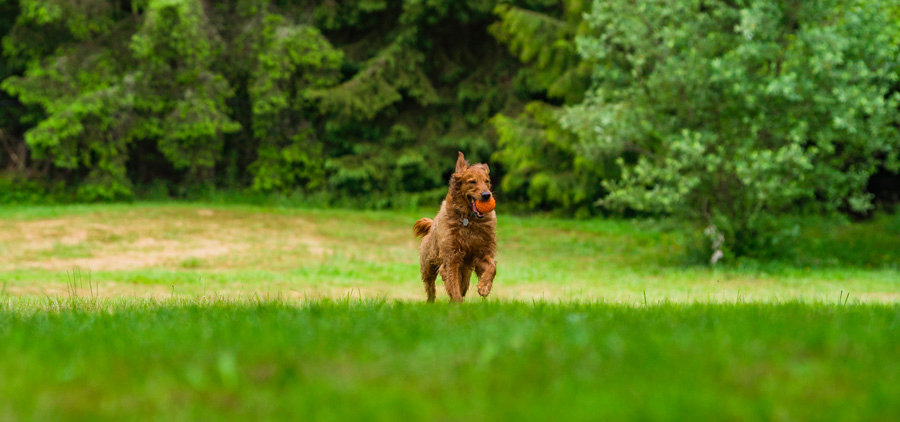The Essential Guide for New Boxer Owners

Discover the Boxer, a breed celebrated for its playful, friendly, and alert nature. Recognized as a large dog, Boxers have their origins in Germany, where they were initially bred for hunting large game starting in the late 19th century.
In this post, we share insights from nearly 10,000 Sniffspot users, offering practical advice for new and prospective Boxer owners. Whether you’re considering adopting or rescuing a Boxer or already have one, you’ll find valuable tips on how to care for and enjoy life with a playful Boxer.
“They are so silly and so sweet while being smart and just big love bugs,” says Sniffspot user Laura. And she's right! Boxers are truly one-of-a-kind. This guide, created with insights from thousands of Boxer owners in our Sniffspot community, covers everything you need to know about Boxer ownership —from finding the best dog brush for Boxers to understanding their unique quirks (are Boxers herding dogs? We'll answer that too!). Whether you're already a Boxer parent or just thinking about it, we're here to help you build an amazing bond with your playful pup.

Source: Sniffspot Community Breed Survey 2024
Boxer Dog Breed: At a Glance
- Breed Type: Working
- Size: Large
- Life Expectancy: 10 to 12 years
- Healthy Weight Range: 50 – 80 lbs
- Height Range: 21 – 25 inches
- Temperament: Playful, Friendly, Alert
- Coat Type: Short
- Color: Fawn or brindle
Getting to Know the Boxer
According to nearly 10,000 Sniffspot community users who shared real-world data about their Boxers, we learned that these dogs are playful and friendly. The Boxer is also known to be very social with children and other pets.
When living with a Boxer, 87% of our owners indicated that a large house with a fenced yard is ideal. Additionally, 33% of owners found that a rural or suburban area with open spaces is also acceptable. This dog is moderately trainable, often benefiting from a professional trainer. Owners say that the Boxer learns best with positive reinforcement, consistent routines, and training aids.
In terms of exercise, 51% of Sniffspot owners say their Boxer benefits from moderate exercise every day, including between 1-2 hours of activity each day, such as walks and active play sessions. The Sniffspot Boxer community recommends this breed for potential first-time owners.
Key Takeaways
- Boxers thrive on activity and social interaction: These playful pups are happiest in homes with space to run and plenty of time for walks, playtime, and socializing with other dogs and people. A fenced yard and regular visits to dog parks are ideal.
- Training is key for a happy Boxer: While generally friendly, Boxers benefit from positive reinforcement, consistent routines, and potentially the guidance of a professional trainer. Early socialization is crucial for their development.
- Boxers are relatively low maintenance but require mindful care: Their short coats are easy to groom with regular brushing. Be aware of potential health concerns like skin and digestive issues as they age, and consult your vet promptly if you notice any problems.
Origins of the Boxer Breed
The Boxer breed was developed in Germany in the late 19th century from the extinct Bullenbeisser, a mastiff-type hunting dog, and Bulldogs from Great Britain. The smaller Brabanter Bullenbeisser, bred in Belgium, is a direct ancestor of the modern Boxer.
In 1894, Friedrich Robert, Elard König, and R. Höpner formalized the breed and showcased it at the Munich dog show in 1896. They also founded the Deutscher Boxer Club and published the first Boxer breed standard in 1904.
The Boxer gained international recognition in the early 20th century, with the AKC registering its first Boxer in 1904. During World War I, it served in various military roles and became widely popular after the war, thanks to returning soldiers who introduced the breed to a larger audience.
Boxer Temperament and Traits
- Temperament: Playful, Friendly, Alert
- Energy Level: Moderate
- Trainability: Moderately trainable – Learns commands with consistent training and practice.
- Grooming Needs: Low maintenance – Requires minimal grooming, such as occasional brushing and baths.
- Good with Kids: Very friendly and social with children
- Good with Other Pets: Very friendly with other pets
What's it Like Owning a Boxer?

Source: Sniffspot Community Breed Research 2024
Finding the Right Boxer for You
Thinking about welcoming a Boxer into your family? It's essential to understand their unique needs and characteristics. According to insights from nearly 10,000 Sniffspot community users, Boxers are playful, friendly, and incredibly social, making them excellent companions for families with children and other pets. This breed thrives in environments where they can interact and engage with their loved ones. If you're looking for places where your Boxer can socialize and play, check out the dog parks on Sniffspot.
Living Space Requirements
Most Boxer owners (87%) recommend a large house with a fenced yard. Another 33% find that rural or suburban areas with open spaces work well too. This highlights the importance of space for a Boxer to play and exercise. If you live in an apartment or smaller home, ensure your Boxer gets plenty of outdoor time at a safe, enclosed dog park.
Exercise Needs
Boxers are energetic and require regular physical activity. 51% of Boxer owners suggest their dogs benefit from moderate exercise every day—ideally, between one and two hours of activities like walks, playing at a dog water park, and other active play sessions. This level of exercise is crucial for their health and happiness. A qualified dog trainer can also help you establish a good exercise routine and teach your Boxer fun new games.
Training and Socialization
Boxers are known for their friendly nature, but training is still essential. Owners report that Boxers learn best with positive reinforcement, consistent routines, and training aids. A professional trainer can be especially helpful for first-time Boxer owners. Early socialization is also key, exposing your Boxer to various sights, sounds, people, and other dogs in a controlled and positive setting. Sniffspot offers a variety of dog-friendly locations perfect for socialization outings.
Boxer Grooming Guide
Boxers require low maintenance grooming. This means Boxer owners should expect minimal grooming, such as occasional brushing and baths. Boxers have a short coat, which is ideal for protection against different climates. Their short coat is considered to shed moderately.
To keep your Boxer’s coat healthy and up to breed standards, include brushing in their routine and brush weekly. Among common breeds in the working group, the grooming needs for Boxers are low maintenance.
Best Dog Brush for Boxers
Boxers have low-maintenance grooming needs, thanks to their short coats. While their coats offer great protection in various climates, they do shed moderately. This means you won't need to spend hours grooming, but regular brushing is still key. A weekly brushing session will keep your Boxer’s coat healthy and looking its best.
Finding the right brush can make all the difference. Here are a few highly-rated options that work well for Boxers:
- FURminator deShedding Edge Dog Brush: This brush is a popular choice for reducing shedding—perfect for Boxers. It’s designed to remove loose hair effectively, keeping shedding under control. You can find this brush recommended on sites like Pawster.
- Kong ZoomGroom: If you’re looking for a gentle option, the Kong ZoomGroom is a great choice. Its soft bristles remove loose hair while giving your Boxer a soothing massage. Pup Junkies highlights this brush as a top pick.
- Pet Neat Self Cleaning Slicker Brush: This brush stands out for its convenient self-cleaning feature. It effectively removes loose hair and makes cleanup a breeze. Go Pets Zone recommends this brush for Boxers.
Even though Boxers don't require constant grooming, regular brushing is important. A weekly brush, along with occasional baths, will keep your Boxer’s coat in top condition. After a grooming session, your Boxer might enjoy a visit to a local dog park. You can discover dog parks near you on Sniffspot.
Exercise Tips for Boxers
Boxers require moderate activity each day. Though one of the most popular dog breeds, Boxers are considered a very athletic and high-energy breed.
Boxers make great pets and thrive with between 1-2 hours of activity each day, including walks and active play sessions. Owners report that their Boxers especially love tug-of-war, playing with squeaky toys, and chasing or playing with a ball or frisbee.
When large breeds like Boxers don’t get sufficient exercise, they’re more likely to exhibit undesirable behaviors like reactivity, stubbornness, and excessive energy. They need consistent training, mental stimulation, and regular moderate exercise to avoid excess energy.
Feeding Your Boxer
What should you feed your Boxer to keep them healthy? As a moderate energy breed, their diet is important. A reported 53% of our community feed their Boxer commercial dry kibble.
With moderate exercise, Boxers should eat 2 to 3 cups of vet-recommended food daily to maintain a healthy weight of around 50 – 80 lbs. However, your Boxer’s ideal weight and food intake depend on your pet’s sex, activity level, and age.
Common Boxer Health Issues
The Boxer breed is most prone to skin conditions (e.g., allergies, dermatitis) and digestive issues (e.g., bloating, sensitive stomach). A reported 48% of our Boxer owners reported skin conditions like allergies, yeast infections, impetigo, ringworm, alopecia, and folliculitis. Boxers’ risk for these challenges increases as they age.
Similarly, 44% reported digestive issues like constipation, diarrhea, vomiting, and lack of appetite. Lastly, 29% of Boxer owners claim their dog struggles with joint problems like arthritis, elbow dysplasia, degenerative issues, and osteosarcoma — a common Boxer health concern. If you’re worried about any of these health issues, talk to your Boxer’s vet.
Are Boxers Friendly?

Source: Sniffspot Community Breed Survey 2024
With moderate training, you can hone your Boxer’s working instincts into a playful and friendly family dog. Introducing your pet to positive reinforcement (treats, praise, rewards) and consistent daily training routines early helps them avoid undesirable behaviors like reactivity, stubbornness, and excessive energy. Our community Boxer owners comment on their pet’s friendliness:
- Very affectionate, interactive, and communicative; humorous antics; playful (Catherine)
- Funny, always up for anything; cuddlers; always happy (Cindy)
- The breed is extremely loving but also protective. (LB)
Boxers and Children
Boxers are known for their playful and affectionate nature, making them excellent companions for kids. Our Sniffspot community research shows Boxers are very friendly and social with children. Their energetic demeanor and protective instincts contribute to a strong bond, ensuring a fun and safe environment for family interactions.
Remember that early socialization and training are key for any breed. Teaching children how to interact respectfully with dogs, and vice-versa, creates a harmonious household. Choosing a dog name together can be a fun part of the bonding process, too!
Boxers and Other Pets
If you're wondering how Boxers get along with other animals, you're in luck. Boxers are generally very friendly with other pets. Their sociable temperament allows them to coexist harmoniously with various animals, provided they are properly introduced and socialized. Our community's experiences confirm that with a bit of training, Boxers can develop strong, friendly relationships with other pets in the household.
Introducing a new pet to a Boxer should be a gradual process. Supervised initial interactions and positive reinforcement can help establish a comfortable dynamic. Creating a safe and enriching environment for all your pets, perhaps even with a dedicated space like those you can find on Sniffspot, can further enhance their relationships.
Training Your Boxer
 Meghan Hessler on Unsplash
Meghan Hessler on UnsplashWhether you’re adopting a Boxer puppy or an adult Boxer, training is a crucial part of owning this large-sized breed. Without proper training, your Boxer is more likely to display undesirable behaviors such as reactivity, stubbornness, and excessive energy. Providing stimulating activities is a great first step, but this needs to be paired with the right training for your Boxer.
As a working breed, Boxers benefit from praise and positive reinforcement. Based on feedback from our Boxer community, here’s what they recommend:
- Positive Reinforcement (93%): This includes treats, praise, and rewards for positive behavior.
- Consistent Routines (60%): A consistent training routine helps your pet become comfortable with expectations.
- Training Aids (45%): Dog training aids such as martingale collars, walking harnesses, and no-pull attachments.
As dogs originally bred for hunting large game, Boxers are considered moderately trainable and often benefit from the guidance of a professional trainer.
Are Boxers Herding Dogs?
While Boxers are known for their playful and friendly nature, they aren’t classified as herding dogs. The Boxer breed was developed in Germany in the late 19th century from the Bullenbeisser, a mastiff-type hunting dog, and Bulldogs from Great Britain. Their primary roles historically have included hunting and working, rather than herding.
Boxers have shown versatility in various roles, including police and war dogs during World Wars, demonstrating their adaptability and intelligence. Although they may display some herding-like behaviors, they are not primarily bred for this purpose. A recent article exploring the Boxer breed's history mentions these behaviors, but ultimately confirms that Boxers are not a herding breed. Instead, they benefit from consistent training and positive reinforcement. Bred for hunting large game, Boxers require training to channel their natural instincts appropriately.
If you're searching for a dog-friendly space to train and socialize your Boxer, explore Sniffspot's listings of private dog parks. These safe and secure spaces offer a great environment for Boxers to play and exercise freely.
Why Do People Love Boxers?
We asked Sniffspot Boxer owners what they love most about their Boxer pups, and here’s what they had to say:
- Their playfulness, affection, expression, and intelligence (M.E.)
- Always happy, loving, playful, full of energy, a real goofy clown (Nancy)
- Goofy, clownish, obedient, loyal, affectionate, loves children (CR)
Famous Boxer Owners
Boxers have captured the hearts of many, including several celebrities who have embraced this playful and affectionate breed. From Hollywood’s golden age to modern-day stars, these famous Boxer owners showcase the breed's enduring appeal:
- Justin Timberlake and Jessica Biel: This power couple is known for their love of Boxers, often sharing glimpses of their furry family members on social media. Their choice reflects the Boxer's adaptability to active lifestyles and their loving nature.
- Kate Upton: The supermodel has shared her life with Boxers, highlighting their playful energy and gentle companionship. Her experiences demonstrate the Boxer's ability to bond closely with their owners.
- Lauren Bacall and Humphrey Bogart: This iconic Hollywood duo's fondness for Boxers speaks to the breed's timeless charm. Their choice reflects the Boxer's sophisticated appearance and their loyal, devoted nature.
- Jennifer Lopez: The multi-talented entertainer has been known to own Boxers, further emphasizing the breed's versatility and appeal. This highlights the Boxer's ability to thrive in various environments and their affectionate, adaptable personalities.
These famous owners, along with thousands of others in the Sniffspot community, exemplify the Boxer’s reputation as a loving and loyal companion. If you're looking for a dog who can keep up with your active lifestyle while showering you with affection, consider finding a Boxer. And if you're already a lucky Boxer owner, check out our resources on dog names, dog trainers, and dog parks to enhance your bond and provide the best possible care.
Challenges of Boxer Ownership
Boxer owners also shared some of the biggest challenges of living with their Boxers:
- Can be high energy. Be prepared for a furry toddler (Mariela)
- They can be stubborn, which presents challenges during training. (Laura)
- They will get into trouble if not properly exercised. (Lora)
Are Boxers Good for First-Time Owners?

Source: Sniffspot 2024 Community Dog Breed Survey
According to 56% of our Sniffspot community, Boxers are a great choice for first-time dog owners. Their playful nature and moderate exercise needs make them an excellent companion. Here’s what Boxer owners have to say:
- Goofy, clownish, obedient, loyal, affectionate, loves children (CR)
- Boxers are so sweet and loving. They’re very expressive in their interactions, and their wiggle butts are the best. (Mariana)
- I love how playful they are. He is constantly bowing, running, and bringing his toys to me. (Faith)
Tips for Boxer Owners
Our Sniffspot community is full of experienced, trustworthy Boxer owners who have shared essential tips and advice for prospective or new Boxer owners:
Finding the Perfect Space for Your Boxer
At Sniffspot, we understand that Boxers are energetic dogs who need space to run and play. Our Sniffspot listings feature a variety of dog parks and off-leash areas perfect for meeting your Boxer's needs. But what should you look for when choosing the right space for *your* Boxer? Here are a few things to keep in mind:
Space to Run
As we learned from our Sniffspot Community Breed Survey, 87% of Boxer owners feel a large house with a fenced yard is the ideal living situation. This preference for spacious living translates directly to their exercise needs. Boxers are naturally athletic and energetic, thriving on one to two hours of activity each day. When selecting a dog park or off-leash area, prioritize spots with ample room for your Boxer to stretch their legs and really run. A cramped space just won't do for this playful breed. Think open fields, long trails, or even a private Sniffspot where they can truly enjoy some freedom.
Secure Fencing
A secure, fully fenced area is crucial for Boxers. Their playful enthusiasm can sometimes lead them to wander, so a reliable fence ensures they stay safe and contained during their playtime. Carefully check for any gaps or weak points in the fencing before letting your Boxer loose. If you're using a Sniffspot, review the host's description and photos to confirm the fencing is appropriate for containing a Boxer's energy and playful nature.
Water Access
Especially during warmer months, access to fresh water is essential. Look for parks or Sniffspots with water features like pools, splash pads, or readily available water bowls. If water isn't provided, bring your own to keep your Boxer hydrated. A dehydrated Boxer is a less happy Boxer, and we want them to enjoy their outing to the fullest!
Enrichment Activities
Boxers are intelligent dogs who benefit from mental stimulation as much as physical exercise. A park with varied terrain, agility equipment, or even just a few strategically placed toys can enrich their outing. This keeps them engaged and prevents boredom, which can sometimes lead to undesirable behaviors. Many Sniffspot hosts offer unique features that cater to a dog's need for enrichment, so explore the options in your area to find the perfect mentally stimulating environment for your Boxer.
Finding the right space for your Boxer contributes significantly to their physical and mental well-being. By considering these factors, you can ensure your Boxer gets the exercise, stimulation, and safe environment they need to thrive. And don't forget to explore Sniffspot to discover a perfect dog park near you!
Is a Boxer's Temperament Right for You?
- Be ready for their energy, goofiness, and tendency to chew through nearly every toy, including couches and pillows. Expect them to be close by and watch them to avoid trouble. They are very good with children if supervised properly, as they may jump up. (Dana)
- Prepare for a high-energy breed. (Jeri)
Boxers: Ready for an Energetic Breed?
- If you don’t like dogs playing with you using their paws, don’t get a Boxer. They’re high-energy dogs but also love to cuddle on the couch. Monitor their sun exposure, as they’re prone to skin cancers. (Mariana)
- Do plenty of research. Most Boxers have high energy and need more than just short daily walks. They require prolonged exercise or they may become destructive. Consider getting pet insurance, as it can be beneficial with this breed. (Dani)
Boxer Stubbornness: Are You Prepared?
- They can be stubborn but will eventually follow commands. (SLM)
- They can be hard-headed and may have separation anxiety. Keep an eye on them as they can be mischievous and get into trouble. Some Boxers are prone to health problems such as heart issues, hip dysplasia, allergies, and cancer. They also need a climate-controlled area due to their short snout. (Jeri)
Understanding Boxer Reactivity
- Boxers can be territorial and aggressive toward delivery people. (KC)
- Provide at least 1 hour of good exercise daily and consider daycare 1-2 times a week for proper socialization with other dogs. (MA)
Frequently Asked Questions about the Boxer
Boxer Lifespan: How Long Do They Live?
The average lifespan of a Boxer is typically between 10 to 12 years.
Boxer Size and Growth Chart
An adult Boxer typically weighs between 50 and 80 pounds and stands between 21 and 25 inches tall.
Grooming Your Boxer: How Much is Enough?
Boxers require low-maintenance grooming. Their short coat is well-suited for different climates and they are considered moderate shedders. Regular brushing helps keep their coat healthy. Among working breeds, Boxer grooming is relatively easy.
How Much Exercise Does a Boxer Need?
Boxers need moderate exercise each day. They are classified as moderately athletic and somewhat high-energy. They thrive with 1-2 hours of activity daily, including walks and play sessions. They particularly enjoy tug-of-war, playing with squeaky toys, and chasing balls or frisbees.
Without enough exercise, Boxers may develop undesirable behaviors. They need ongoing training, mental stimulation, and consistent exercise to manage their energy effectively.
Are Boxers Good with Kids?
Boxers are very friendly and social with children.
Do Boxers Get Along with Other Pets?
Boxers are very friendly with other pets.
Best Food Choices for a Healthy Boxer
As a moderate energy breed, the diet of your Boxer is important. A significant 53% of our community feed their Boxer commercial dry kibble.
For optimal health, Boxers should consume 2 to 3 cups of vet-recommended food daily to maintain a healthy weight of 50 to 80 pounds. The exact amount and type of food depend on your Boxer’s sex, activity level, and age.
Common Health Problems in Boxers
Boxers are prone to skin conditions such as allergies, yeast infections, impetigo, ringworm, alopecia, and folliculitis. Our data shows that 48% of Boxer owners report these skin issues. They are also prone to digestive issues like constipation, diarrhea, vomiting, and lack of appetite, reported by 44% of owners.
Additionally, 29% of Boxer owners report joint problems such as arthritis, elbow dysplasia, degenerative issues, and osteosarcoma. If you have concerns about these health issues, consult your Boxer’s veterinarian.
Helpful Resources for Boxer Owners
Whether you currently own a Boxer or are considering adopting one, Sniffspot provides helpful resources:
Sources:
Most recent articles
Related articles
Top dog guides per area
Dog training guides

Dog Food Aggression: Why You Shouldn't Punish It
Does your dog ever growl when you walk by their food dish? Maybe they get possessive of treats, carrying them far away and giving you side-eye when you start to approach — or snarling at your other pets or children if they get too close.

Best Dog Fields in the US: 25+ Wide-Open Spaces for Your Pup to Run Free
The best dog fields in the US offer something that traditional enclosed parks simply can't match: acres of open space where your pup can truly stretch their legs and run at full speed. From Colorado's 470-acre prairie meadows to Tennessee's award-winning "Outback," these wide-open spaces allow dogs to roam, explore, and exercise naturally while engaging instincts that cramped urban parks suppress.

The Ultimate Guide to Scent Training for Dogs
Your dog's nose is an amazing tool. Did you know they have 40 times the olfactory receptors than humans? Scent training for dogs taps into this superpower, turning everyday moments into exciting sniff-fests. It's enriching for all types of dogs – reactive, shy, or simply adventurous. Ready to explore the world of scent work for dogs? Let's get started.

Service Dog Training Costs: DIY vs. Pro
More than 80 million Americans rely on their service dogs to help them navigate the world. Task-trained assistance animals perform a huge range of life-changing—in many cases, life-saving—services: These dogs act as eyes for visually impaired handlers, provide mobility support, alert to seizures and blood sugar crashes, interrupt anxiety attacks, remind their people to take medications, and so much more.

How to Deal With Puppy Potty Training Regression

Dirty Dog Syndrome: Causes, Solutions, and Prevention
It's a cringe-worthy moment every dog owner dreads: your furry friend chowing down on something truly disgusting. If your dog has a penchant for poop, you're dealing with coprophagia. It's more common than you think, and thankfully, often manageable. This article explores the reasons behind dirty dog syndrome, from instinct to learned behavior. We'll also give you practical tips to help break this unpleasant habit.

How to Train Your Rescue Dog: A Complete Guide
* All Sniffspot articles are reviewed by certified trainers for quality, please see bottom of article for details *
Dog enrichment guides

Best Dog Water Parks in the US: 15+ Amazing Splash Destinations for Your Pup
Do you have a water-loving dog looking to burn some energy? There are countless dog parks to visit throughout our country — but some of them become far too hot in the midday sun to be safe for your pets to play. That’s why we’ve put together a list of some of the best dog water parks throughout the United States! At these locations, your pup can frolic, splash, and swim to their heart’s content.

Best Dog Fields in the US: 25+ Wide-Open Spaces for Your Pup to Run Free
The best dog fields in the US offer something that traditional enclosed parks simply can't match: acres of open space where your pup can truly stretch their legs and run at full speed. From Colorado's 470-acre prairie meadows to Tennessee's award-winning "Outback," these wide-open spaces allow dogs to roam, explore, and exercise naturally while engaging instincts that cramped urban parks suppress.

Best Toys for Herding Dogs: Keeping Your Pup Happy & Engaged
Herding dogs are amazing, intelligent companions. But that also means they need more than just a simple game of fetch. Finding the right toys for herding dogs is key to keeping them happy and stimulated. This article explores some of the best toys for herding dogs, including options specifically for breeds like Border Collies and Australian Shepherds. We'll help you discover the perfect herding toys for dogs to tap into their natural instincts and keep them entertained for hours.

Tough Dog Toys for Aggressive Chewers: A Practical Guide
Does your dog destroy every toy you give them? Is your house littered with the remnants of plush toys? Are you tired of wasting money on "indestructible" dog toys for aggressive chewers that don't last? Then this post is for you. We'll cover everything you need to know about finding the best dog toys for aggressive chewers, so you can finally give your pup something safe, durable, and fun.

Daily Exercise Calculator: How Much Exercise Does Your Dog Need?
Everyone knows dogs need exercise, but how much is enough? Walks are great, but creating a truly balanced fitness plan means understanding your dog's specific needs. This post helps you develop a daily exercise calculator for your dog, considering breed, age, and lifestyle. We'll cover fun activities, understanding exercise intensity, and recognizing when your pup has had enough. Let's create a plan that keeps your dog happy and healthy!

Complete Guide To Herding With Dogs
* All Sniffspot articles are reviewed by certified trainers for quality, please see bottom of article for details *

Dog Enrichment Activities: The Ultimate Guide
Ever feel like your dog is restless or bored? They may be getting enough exercise, but still need more. That's where enrichment activities for dogs come in. Giving your dog opportunities to sniff, explore, and problem-solve can make a world of difference. Whether you have a puppy, adult, or senior dog, enriching their environment is key for their well-being. Let's explore how to add cognitive enrichment for dogs, even tailoring activities to your dog's breed with breed specific enrichment and fun enrichment games for dogs.
Dog reactivity guides

Rottweiler Aggression: Truth vs. Myth
Many dogs have gotten a bad reputation over the years for being "dangerous breeds." Rottweilers are among them. Like pit bulls and other large, blocky-headed types of dogs, these powerful and beautiful animals are often assumed to be aggressive.

Best Dog Fields in the US: 25+ Wide-Open Spaces for Your Pup to Run Free
The best dog fields in the US offer something that traditional enclosed parks simply can't match: acres of open space where your pup can truly stretch their legs and run at full speed. From Colorado's 470-acre prairie meadows to Tennessee's award-winning "Outback," these wide-open spaces allow dogs to roam, explore, and exercise naturally while engaging instincts that cramped urban parks suppress.

The Reactive Dog Chart: How to Calm Your Dog's Triggers
If your dog lunges, barks, or loses their mind at the sight of another dog, a stranger, or a bicycle, you’re living with a reactive dog (and you’re far from alone). Dog reactivity is one of the most common behavioral challenges dog owners face, and it can make even a simple walk feel stressful and isolating.

How to Socialize a Reactive Dog: A Step-by-Step Guide
Does your dog display reactivity to other pets or people—barking, lunging, or growling when they see their triggers? Whether they're a rescue still settling in, missed critical socialization as a puppy, or had a negative experience, you're not alone. Reactivity is one of the most common dog behavior concerns, and with the right approach, you can help your reactive dog feel calmer and more confident around their triggers.

What Is a Reactive Dog? The Complete Guide for Understanding and Helping Your Pup
Does your dog transform into a barking, lunging tornado the second they spot another dog across the street? You're definitely not alone. According to our research of over 4,000 dog owners, 66% of dogs show some signs of reactivity.

9 Best Online Communities for Reactive Dog Parents
Does your dog's reactivity make walks stressful? You're not alone. Many dog owners face similar challenges. This guide offers practical advice and support for managing reactivity, including finding the best online dog training for reactive dogs. We'll connect you with reactive dog support groups, share training tips, and explore resources like the best dog training app for reactive dogs. Let's build a stronger bond with your dog, together.
* All Sniffspot articles are reviewed by certified trainers for quality, please see bottom of article for details *
How To Groom a Reactive Dog
* All Sniffspot articles are reviewed by certified trainers for quality, please see bottom of article for details *
Sniffspot community guides

The State of Public Dog Parks Across the United States
From 2009 to 2020, there was a 40 percent increase in the development of public dog parks. Designated spots for canine exercise have become commonplace in every major city in North America — many pet owners won’t even consider renting an apartment that doesn’t have its own fenced-in pet area for their canine companions.

Best Dog Fields in the US: 25+ Wide-Open Spaces for Your Pup to Run Free
The best dog fields in the US offer something that traditional enclosed parks simply can't match: acres of open space where your pup can truly stretch their legs and run at full speed. From Colorado's 470-acre prairie meadows to Tennessee's award-winning "Outback," these wide-open spaces allow dogs to roam, explore, and exercise naturally while engaging instincts that cramped urban parks suppress.

How This Family is Affording Their Dream Property Through Renting it Hourly to Dogs
Thousand Oaks, California has been a safe haven for Sniffspot host, Jen, since childhood. Having grown up in busy Santa Barbara, Jen, an introvert from an early age, would seek out solitude and serenity away from tourists attractions and droves of people visiting from elsewhere. “My grandparents own 60 acres about a 30 minute drive from here, and I grew up spending every summer and every holiday visiting them on the ranch,” Jen explained. “In Santa Barbara, we wouldn't go to the beach on the weekend because that's where everybody was, so you'd find places off the beaten path where the tourists weren't. For me, the ranch was just my happy place.”

Host Tips: Ellen K. What Makes Sniffspot Successful for Me
Ellen is the host of Country Pasture Getaway, one of Sniffspot's most popular sniff spots. She has taken the time to write up the lessons she has learned about how to be a great sniff spot host.

How this Oregon Farmer is Making a Business From Renting Her Land to Dogs
Just 20 minutes outside of the busy city of Portland, Oregon, and settled right on the banks of the Columbia River, you’ll find what countless visitors have flocked to the area in search of – mountain views, crisp, clean air, and running water for miles. What you might not expect to find, however, is a hidden oasis designed just for dogs and their people, owned and operated by a farming couple and enjoyed by visitors on two legs, and four.

Host Tips: Fran T. Providing Great Guest Service at our Spot
Fran is the host of Ranch Setting, one of Sniffspot's most popular spots. She has taken the time to write up the lessons she has learned about how to be a great Sniffspot host.

How Sniffspot Helped a Nervous Rescue Work Through His Fears and Change His Family’s Life
This is the story of a family and dog rescuing each other.
Top dog trainers in the US

The Best Dog Trainers in the United States of 2026
This is a list of the top dog trainers in the United States, based on votes from the Sniffspot community and the general public.
The Best Dog Trainers in Seattle, WA of 2026
This is a list of the top dog trainers in Seattle, WA, based on votes from the Sniffspot community and the general public.
The Best Dog Trainers in Portland, OR of 2026
This is a list of the top dog trainers in Portland, OR, based on votes from the Sniffspot community and the general public.
The Best Dog Trainers in Los Angeles, CA of 2026
This is a list of the top dog trainers in Los Angeles, CA, based on votes from the Sniffspot community and the general public.
The Best Dog Trainers in New York, NY of 2026
This is a list of the top dog trainers in New York, NY, based on votes from the Sniffspot community and the general public.
City dog parks guides

Top 10 Indoor Dog Parks: A US Guide
Looking for a space to play with your dog no matter what the weather’s like outside? Look no further than our list of the best indoor dog parks in the United States! These climate-controlled spaces are growing in popularity as pet ownership increases throughout the country. As a bonus, many of them also offer dog training, boarding, grooming, or daycare services on the premises.

Best Dog Fields in the US: 25+ Wide-Open Spaces for Your Pup to Run Free
The best dog fields in the US offer something that traditional enclosed parks simply can't match: acres of open space where your pup can truly stretch their legs and run at full speed. From Colorado's 470-acre prairie meadows to Tennessee's award-winning "Outback," these wide-open spaces allow dogs to roam, explore, and exercise naturally while engaging instincts that cramped urban parks suppress.

Best Dog Parks in the US: Ultimate Guide to Public & Private Off-Leash Adventures
Is your pup giving you those pleading "let me run free" eyes? Whether you're a new dog parent or a seasoned pro looking for fresh adventures, finding the perfect off-leash paradise for your furry friend can feel ruff! From sun-soaked California beaches where your water-loving lab can make a splash to mountain trails in Vermont where your adventure buddy can chase every scent, we've sniffed out the 15 best dog parks across America.

Dog Parks Near Me: Las Vegas Edition
Looking for the perfect dog park near me in Las Vegas? You're in luck! This guide explores all the best options for your pup, from public dog parks to private dog parks near me on Sniffspot. We'll help you find the ideal spot for playtime, socializing, and fresh air. Plus, we'll cover essential etiquette and safety tips to ensure a happy visit for everyone. Get ready for some tail-wagging fun!

Top Sniffspot Locations: Find the Perfect Dog Park
Looking for the perfect dog park? Whether you need a wide-open public space or a private, fenced-in spot, this guide will help you find the best dog parks across the US. We'll cover top-rated public parks, the perks of private dog parks, and even explore Sniffspot locations – giving your pup a safe and fun place to play. Ready to find your dog's new favorite spot? Let's go!

Sniffspot: Portland's Best Private Dog Parks
Ready to discover Portland's best dog parks? Whether you're looking for a public park or the unique experience of a private Sniffspot, this guide has you covered. We'll help you find the perfect spot for your pup, with tips on what to bring, how to prepare, and even understanding dog body language. Plus, we'll explore some top Portland dog parks, including public and Sniffspot options, so you can plan your next dog-friendly adventure in the City of Roses.
Portland Dog Parks: Public & Private Options
This page is about public city dog parks and also includes Sniffspot private dog parks. Sniffspot is the largest network of private dog parks for rent in the world!
Small Dog Park Guide: Tips for Finding the Perfect Spot
Finding the perfect dog park for your small breed can be ruff! Big dog parks can be overwhelming, even dangerous, for little pups. This comprehensive guide helps you sniff out the best small dog parks for your pint-sized companion, covering everything from essential safety checklists to top recommendations for small dog parks across the US—including both public spots and private dog parks.
Dogs breeds

German Shepherd Guide: Best Family Dog? Truth from 9K Owners
The German Shepherd Dog (GSDs) are known for their intelligence, loyalty, and striking appearance. They're also incredibly versatile, excelling as working dogs and devoted family companions. This guide covers everything you need to know about GSDs, from understanding their unique traits and rich history to practical advice on training and care. So, whether you're a seasoned GSD owner or just starting your research, let's explore this remarkable breed together.

Best Dog Fields in the US: 25+ Wide-Open Spaces for Your Pup to Run Free
The best dog fields in the US offer something that traditional enclosed parks simply can't match: acres of open space where your pup can truly stretch their legs and run at full speed. From Colorado's 470-acre prairie meadows to Tennessee's award-winning "Outback," these wide-open spaces allow dogs to roam, explore, and exercise naturally while engaging instincts that cramped urban parks suppress.

Labrador Retriever: America's Best Family Dog? Owner Truth
Discover the Labrador Retriever, a breed celebrated for its playful nature, affectionate temperament, and trainability. Labradors are known for their friendly demeanor and adaptability, making them perfect family companions and versatile working dogs. As one of the most popular types of retrievers, Labs are ideal companions for various lifestyles and are recognized by the American Kennel Club (AKC) as an excellent breed for families.

Golden Retriever Advice: The Complete Owner's Guide
Golden Retrievers: they're gorgeous, playful, and incredibly popular. But before you welcome one into your home, you need the right golden retriever advice. This guide draws on the wisdom of nearly 10,000 Golden Retriever owners, offering practical tips for caring for these affectionate dogs. From understanding their high energy levels to mastering grooming and training, we'll cover everything you need to know. So whether you're already a devoted Golden parent or just starting your research, get ready to learn how to give your furry friend the best possible care.

Are American Staffordshire Terriers Good for First-Time Owners: Complete Guide
Think American Staffordshire Terriers are tough? Think again. While their muscular build might intimidate some, these dogs are known for their playful and loyal personalities. This guide draws on the experience of nearly 10,000 AmStaff owners to reveal the truth about this often misunderstood breed. Want to learn more about caring for an American Staffordshire Terrier? You're in the right place.

Australian Shepherd Facts: Breed Info & Care Guide
Discover the Australian Shepherd, an AKC breed celebrated for its trainable, playful, and affectionate nature. Despite its name, the Australian Shepherd is actually a native breed to the United States, originally developed to breed on farms and ranches. Considered a medium dog, Australian Shepherds were bred for herding beginning in the 1950s. As one of the high-energy breeds, Aussies are known for their boundless energy and need for regular exercise, including aerobic exercise.

Essential Husky Facts for Owners: Breed Guide
Discover the Siberian Husky, a breed celebrated for its curious, intelligent, and loyal nature. Considered a medium-sized dog, Siberian Huskies were originally bred in Russia for sledding, beginning in the early 20th Century. Today, they're one of the most popular active breeds in North America.




























